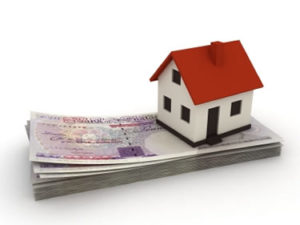You may have come across terms ‘secured’ and ‘unsecured’ when it comes to loans. But what exactly does this mean? In fact, unsecured and secured loans are two very different things and to know the difference between the two is fairly vital before you go ahead and fill out any application forms for a loan of any kind. In this guide, we aim to clear up and confusion and provide clarity on what means if a loan claims to be secured or alternatively, unsecured.
What is a secured loan?

A secured loan is also referred to by some as a homeowner loan. This is because a secured loan has the debt associated with it linked (or ‘secured’) to the loan borrower’s property. Therefore, it becomes obvious that secured loans are only available to be taken out by people who already own or are buying their own homes. A secured loan can be used to borrow anything from the £5,000 mark and upwards.
With a secured loan, the amount you are entitled to borrow, the duration of the loan agreement and the amount of interest which will be offered is wholly dependent on personal circumstances and the amount of free equity which you have in your property.
Essentially, free equity is the difference between the amount you will owe on your mortgage and the actual value of your home.
What is an unsecured loan?
Now we are looking at an unsecured loan. An unsecured personal loan is available to those who have at least a fairly decent credit score. With an unsecured loan, what differs mainly is that you do not have to be a homeowner to obtain it. You can use an unsecured loan to borrow anything which ranges from £1,000 to £25,000. However, keep in mind that they are generally at their cheapest when you are borrowing between £7,500 and £15,000.
To avoid paying more than you should, be sure to always check the terms and conditions for any charges and fees which may not be initially clear, such as an early repayment penalty.
Pros and Cons
Let’s talk about the advantages and disadvantages of both secured and unsecured loans to compare and contrast what is best for you.
Pros of a Secured Loan
- Taking out a secured loan will mean that the repayment period is usually going to be longer. Meanwhile the fixed monthly payments should make it easy for you to manage the repayments as a whole.
- The amount available to borrow for via a secured loan is usually much higher than that of a personal loan, which will only go up to about £25,000 in most cases.
- If you do not have an excellent credit history, you may just find that you actually have little choice but to take out a secured loan over a personal loan. With your property acting as security, you will be seen less as a risk and it will make the loan easier to qualify for.
Cons of a Secured Loan
- With a secured loan, you will need to keep up repayments or risk losing your home as collateral.
- There is the potential to be fees and charges such as early repayment penalties as they could increase the cost of borrowing.
Pros of an Unsecured Loan
- Unsecured loans are more widely available to a larger proportion of people. You do not have to be a homeowner. For example, in the case of online payday loans, you may be a tenant, but still eligible for the loan
- Flexibility is offered in terms of choice as to how long you have to repay the loan – most loan borrowers opt to make fixed repayments for a period of between one to five years.
- You may find that some unsecured loans come with the option of a ‘payment holiday’ which can be about two or three months are the start of your agreements.
- Typically, the best loan rates are for borrowers of an unsecured loan who are looking to repay what they borrowed over three to five years. This means they you will pay a higher interest rate to borrow over a shorter period of time.
Cons of an Unsecured Loan
- The interest charges which are applied to larger or smaller amount can be rather expensive.
- The best deals are only really open to those who obtain the best and highest credit scores.
If you are looking for a quick way to obtain property and do not have time to wait for a mortgage to clear, bridging finance may be the best option for you.
Read more about unsecured and secured loans with this guide from the and-unsecured-borrowing-explained”>MoneyAdviceService.